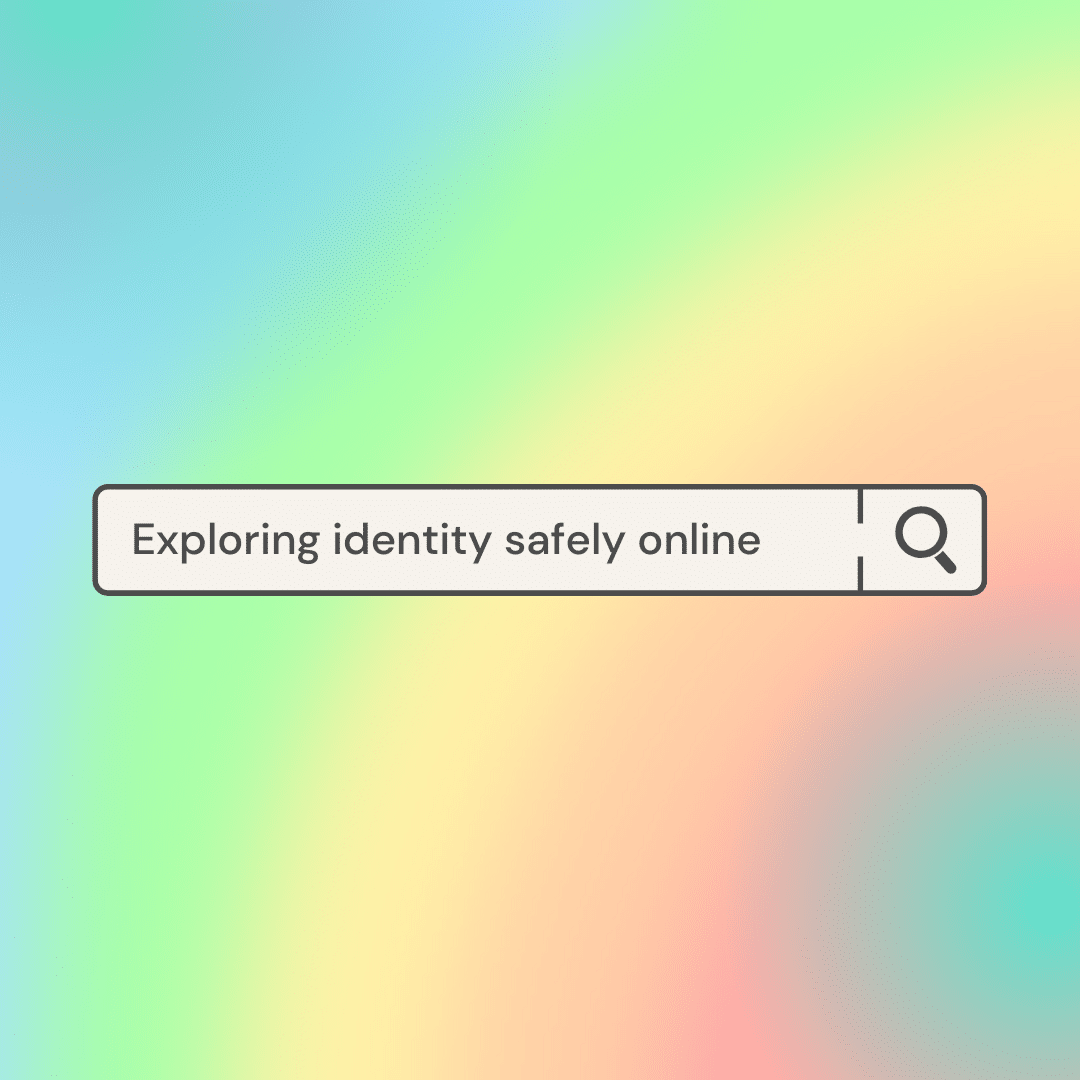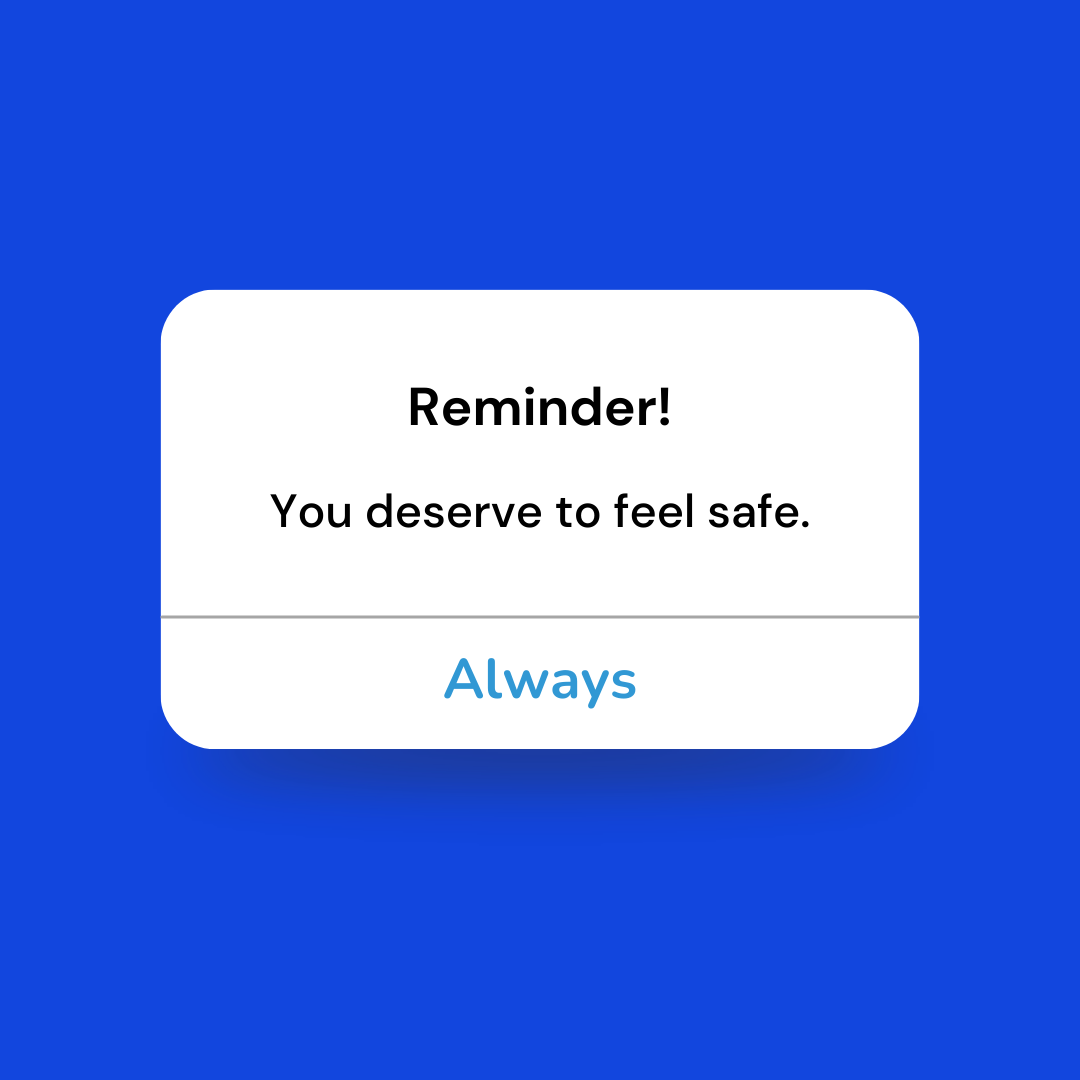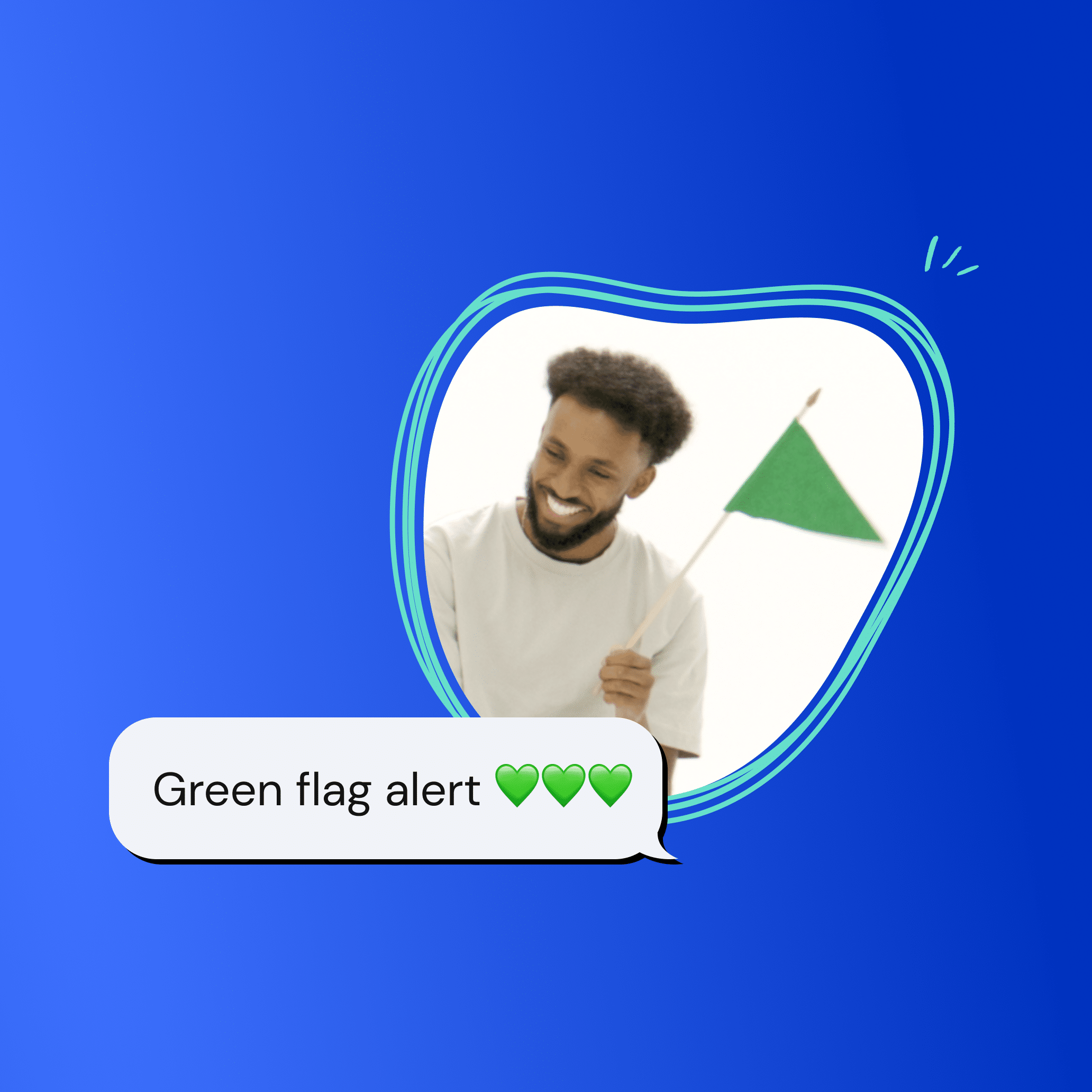How to Safely Explore Your Identity Online
Exploring your identity online can be scary, but we have some advice on how to do it safely.

 Youth Advice
17 years
Youth Advice
17 years
Finding online spaces that are safe, inclusive, and affirming can be an empowering experience. We want to meet like-minded individuals, find support, explore our identities, and build lasting connections without the fear of running into risky or toxic online behaviors that affect everyday life.
Here are some tips from peers on how to navigate the digital landscape while maintaining boundaries and your mental health.
Did You Know?
More than three out of four LGBTQ+ teens view their online communities as essential to them, suggesting that digital platforms act as tools for increased exploration for young LGBTQ+ people and at earlier ages.
Thorn, 2023. “LGBTQ+ Youth Perspectives: How LGBTQ+ Youth are Navigating Exploration and Risks of Sexual Exploitation Online
It can be lonely figuring out your identity, so online communities can be a great way to connect with people you can relate to and talk to.
There are ways to ensure that you’re getting to know genuine people who are there to help, rather than take advantage of you.
When someone comes to you for help, it means they trust you, and we know what type of pressure that creates.
Here are some tips on how to engage with someone new online:
- Inclusive language: When people use language that respects preferred pronouns, diverse and intersecting backgrounds, and everyone’s unique boundaries, you’re more likely to feel safe within that community.
- Supportive atmosphere: How do members of the online community interact with one another? Do they offer empathy instead of judgment, give genuine and constructive advice, call out toxic behavior, and share valuable resources? Life is hard enough without online drama – look for communities where people uplift and empower one another.
- Respect for Boundaries: Do members within the community seek clear consent before sharing or re-sharing personal content? Do they avoid pressuring others into uncomfortable situations?
- Strong community moderation: Clearly written and enforced community guidelines help foster a safe and respectful space. Communities that actively address harassment, hate speech, bullying, or inappropriate behavior swiftly and consistently can make you feel safe.
- Resource Sharing and Education: If you’re looking to learn more about your identity, the right community for you will emphasize education, resource sharing, and promoting informed discussions. Look for communities where members share reliable resources, engage in conversations about consent, sexual health, and mental well-being, and encourage learning and growth.
 Youth Advice
16
Youth Advice
16
When should you leave a conversation or community?
You found a community where you’ve freely expressed yourself, but lately something doesn’t feel right. “The right time” to leave a community is different for everyone, but here’s a sign if you’ve been wrestling with reasons.
When Your Boundaries Have Been Crossed…
Especially, repeatedly. When your boundaries are disrespected, Boundaries are how we keep ourselves safe, but also how we can rate our trust of others. If your boundaries aren’t being respected, it’s a sign that you shouldn’t trust the person on the other end of the screen.
When Your Mental Health is At Risk…
Maybe the community isn’t all you thought it was, and you’re finding your online friends are engaging in toxic conversations and behavior. If it’s affecting your ability to care for your mental health, it’s totally okay to dip!
When You No Longer Feel Safe…
You were looking for a safe place or a genuine connection that would help you grow and feel more like yourself. But somehow, you feel like you’ve landed somewhere confusing and dangerous. Whether you’re talking to someone who you think has bad intentions, or the community you joined is making you second-guess your safety, you need to prioritize YOU.
 Youth Advice
15 years
Youth Advice
15 years
Lets Chat
If you’re unsure on how to ask a trusted adult or friend for help on how to navigate your exploration safely, here are some tips.
You don’t have to deal with exploring your identity online alone.
Reaching Out for Support
Asking a Friend for Help
Today
You don’t have to deal with exploring your identity online alone.
Let’s Play This Out
Asking a Trusted Adult for Help
Today
Additional Resources
In addition to asking a trusted adult or friend for help, there are amazing resources and existing communities that you can reach out to. Our friends below can step in to help you navigate your safe online exploration.
- 💙 Access The Trevor Project‘s 24/7/365 Lifeline at 866-4-U-TREVOR (866-488-7386) or TrevorChat, their online instant messaging option, or TrevorText, a text-based support option. Join TrevorSpace from anywhere in the world for peer support.
- 💙 Visit It Gets Better for a global list of organizations and resources to support you and your friends.
- 💙 The National Suicide Prevention Lifeline at 800-273-TALK (8255) provides 24/7, free and confidential support.
- 💙 Run by and for trans people, Trans Lifeline provides safe peer support and can be reached at 877-565-8860
Need to talk?
Text NOFILTR to 741741 for immediate assistance.


